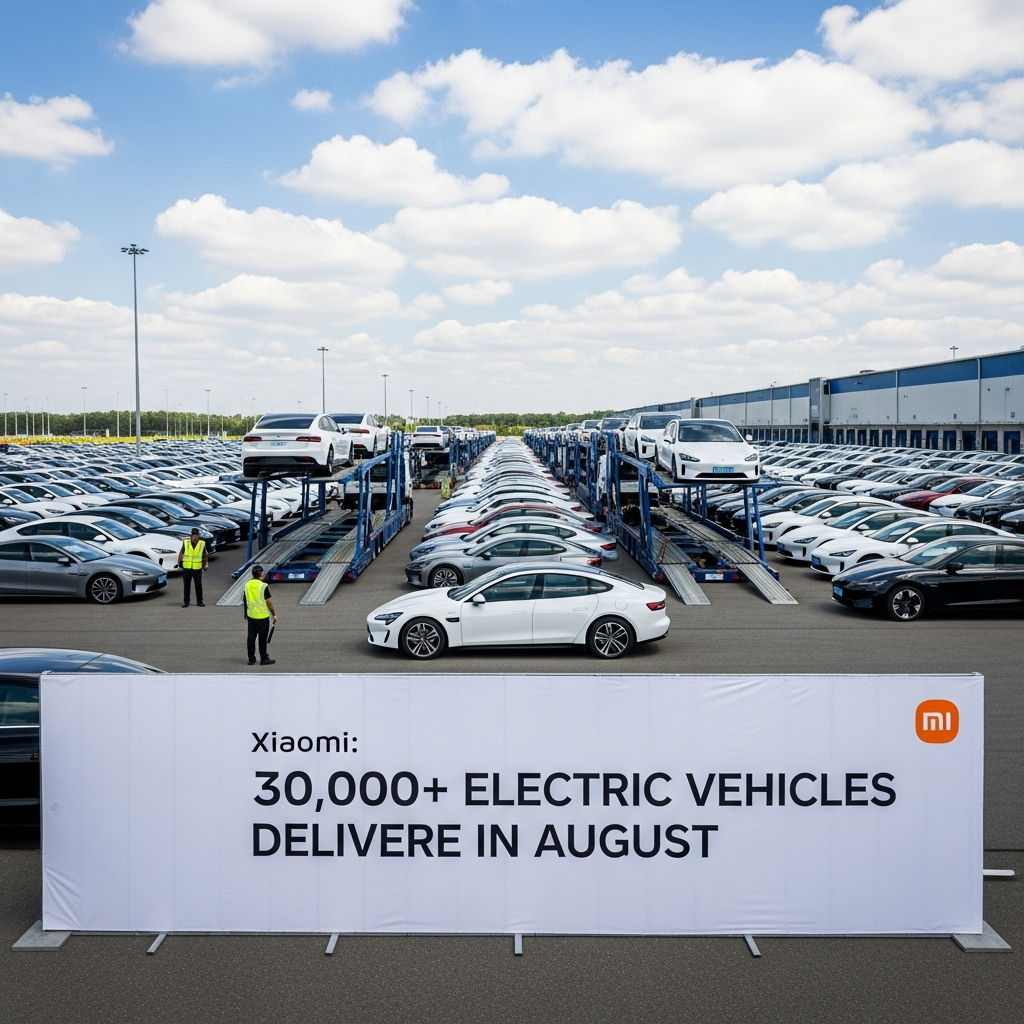Xiaomi delivered over 30,000 electric vehicles in August

Xiaomi demonstrated strong performance in the electric vehicle market during August. For the second consecutive month, the company delivered more than 30,000 vehicles, continuing its rapid growth in China. Having launched its first car only about a year ago, the brand quickly rose to become one of the noteworthy players in the EV industry.
At the center of this success lies the YU7 electric SUV. Introduced on June 26, the model was met with astonishing demand right from the start. Within just three minutes, it received 200,000 orders, and before 18 hours had passed, the number exceeded 240,000. In addition, its competitive pricing played an important role in attracting consumers. With its technical features, the YU7 appears to have surpassed expectations.
Xiaomi YU7 faces production challenges due to high demand
The vehicle, priced between 253,500 and 329,900 yuan, appeals to the upper-mid segment. Thanks to its 800V architecture, it offers high charging performance and a driving range of 760 to 835 kilometers. These figures strongly influence consumer purchasing decisions. However, the overwhelming demand is straining delivery schedules. According to data in Xiaomi’s own app, waiting times can extend up to 56 weeks.
To overcome production capacity limitations, the company is taking new steps. In July, large-scale hiring was carried out for a second factory and the expansion process accelerated. With the confirmation of the site for a third factory in June, investment plans took clearer shape. These moves are considered critical for reducing waiting times in the long term. At the same time, strengthening the production infrastructure will help the brand reach its broader goals.
Xiaomi’s story did not begin with the YU7; its foundation was laid with the SU7 sedan. Unveiled in March 2024, this model proved that the company could truly enter the EV market. Priced between 215,900 and 299,900 yuan, the SU7 offered a range of 700 to 830 kilometers. Thanks to its price-performance balance, it reached a wide audience. Moreover, the success of the SU7 laid the groundwork for the YU7 to follow. Introduced in February 2025, the SU7 Ultra targeted a different audience. Built for performance enthusiasts, this model delivers 1,548 horsepower from its three motors. It accelerates from 0 to 100 km/h in just 2.1 seconds, with a top speed of 350 km/h—making it one of the standout models in its class. The Nürburgring Limited Edition, with only 100 units produced, gained special appeal among collectors.
While production efforts continue, Xiaomi is also strengthening its after-sales services. In August, 18 new stores were opened, raising the total number to 370. Spread across 105 cities, these outlets make vehicles more accessible to customers. Furthermore, the expansion of the service network directly enhances the user experience, aiming to protect and improve customer satisfaction.
The company’s founder, Lei Jun, announced clear goals for 2025. Official statements project 350,000 deliveries, though internal plans suggest figures between 400,000 and 500,000. In the mid-term, Xiaomi expects to deliver 800,000 vehicles by 2027. These targets reflect the company’s determination to become a lasting force in the EV industry. However, achieving them will depend heavily on expanding production capacity.
Rising demand for electric vehicles in China supports the company’s growth potential. Consumers particularly value range capacity and price balance. At this point, Xiaomi successfully brings its technological expertise into the automotive sector. In addition, the brand’s strong image makes consumer choices easier. Altogether, this picture suggests that Xiaomi will reach an even larger user base in the years to come.



